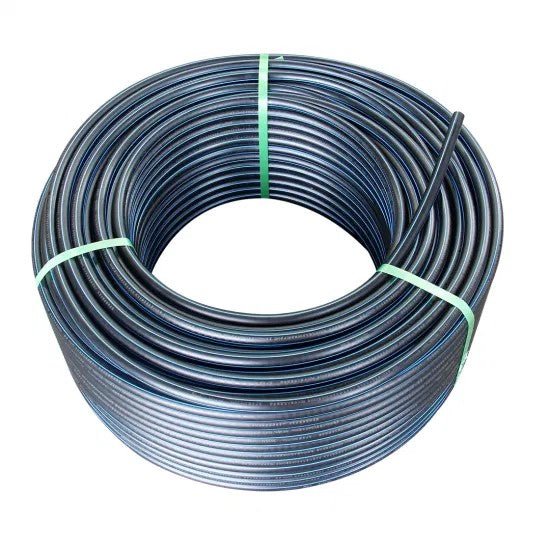How American Plastics HDPE Pipe Manufacturing Maintains Product Consistency
Wiki Article
Comprehending the Trick Conveniences of HDPE Pipe for Water and Wastewater Administration
Using HDPE pipeline in water and wastewater monitoring presents countless advantages that warrant factor to consider. Its outstanding sturdiness and lengthy life expectancy make it a favored option for several tasks. In addition, the material's resistance to deterioration and chemical damages enhances its reliability in different atmospheres. The benefits extend past just long life and resistance. Pipe Manufacturing Midland TX. Exploring its cost-effectiveness and ecological influence reveals even more engaging factors for its prevalent fostering in contemporary facilitiesExtraordinary Resilience and Longevity

HDPE pipe attracts attention for its extraordinary sturdiness and longevity, making it a favored option in water management systems. Constructed from high-density polyethylene, these pipes can endure significant stress and tension, ensuring trustworthy performance in time. Their durable nature enables them to endure severe ecological conditions, including temperature level fluctuations and soil movements, which can cause other materials to fail.
The life-span of HDPE pipelines commonly surpasses 50 years, giving a cost-efficient remedy for towns and markets alike. Furthermore, the product's light-weight properties streamline setup, reducing labor costs and timeframes. This sturdiness reduces the need for regular repair services or replacements, even more improving its financial appeal.
In water monitoring applications, the reliability of HDPE pipes implies less disruptions and boosted solution connection, making them indispensable to sustainable framework advancement. The mix of toughness and long life solidifies HDPE's duty as a keystone in efficient water monitoring solutions.

Resistance to Deterioration and Chemical Damages
While many products surrender to deterioration and chemical damages gradually, HDPE pipes display remarkable resistance, making them perfect for various water management applications. This strength comes from the molecular structure of high-density polyethylene, which is inherently non-reactive and does not wear away like metals or deteriorate from direct exposure to rough chemicals. Therefore, HDPE is extremely efficient in environments with hostile compounds, such as wastewater systems that may consist of acids, bases, and organic solvents.
Furthermore, HDPE pipes can hold up against environmental aspects such as dirt acidity and saline problems, additionally enhancing their viability for varied applications (Midland TX HDPE Pipe Fittings in Stock). Their ability to maintain architectural stability with time minimizes the threat of leaks and failings, which is critical in making certain the security and dependability of water distribution and wastewater administration systems. The resistance to corrosion and chemical damage markedly adds to the total effectiveness and longevity of HDPE piping solutions.
Cost-Effectiveness and Financial Benefits
When considering the economic ramifications of water monitoring systems, the cost-effectiveness of HDPE pipelines becomes evident. These pipelines provide lower installment and upkeep expenses compared to standard products like metal or concrete. Their light-weight nature streamlines transportation and setup, leading to reduced labor expenditures. Additionally, HDPE pipes show a lengthy lifespan, typically going beyond half a century, which converts to less replacements and long-term cost savings.The resistance of HDPE to rust and chemical damage reduces the demand for costly fixings and substitutes. The pipelines additionally sustain effective water circulation, minimizing energy prices linked with pumping systems. By minimizing leakages and water loss, HDPE pipelines add to significant financial advantages for communities and industries alike. Generally, the first financial investment company website in HDPE piping can generate considerable financial returns over the life expectancy of the water administration system, making it a prudent selection for lasting framework development.
Ecological Sustainability and Minimized Impact

Versatility and Flexibility in Installment
As a result of their special homes, HDPE pipelines offer exceptional convenience and adaptability in installment, making them suitable for a large array of applications. Their light-weight nature permits for simpler handling and transport, decreasing labor expenses and setup time. HDPE pipelines can be curved and shaped to fit different surfaces and project demands, which is specifically advantageous in testing settings.Additionally, their resistance to rust and chemical damage enables for setup in diverse setups without the demand for specialized safety finishings. The capability to fuse joints produces a constant, leak-free system, enhancing the total honesty and dependability of the installation. HDPE's flexibility likewise fits ground activity, reducing the danger of damages in locations susceptible to moving dirt. On the whole, these features make HDPE pipelines not only flexible yet likewise a recommended option for water and wastewater management systems.
Often Asked Inquiries
How Does HDPE Pipe Contrast to PVC in Water Monitoring Applications?
HDPE pipeline provides remarkable flexibility, resistance to rust, and toughness contrasted to PVC. Its lighter weight helps with less complicated setup, while its lengthy life-span decreases substitute expenses, making HDPE a preferred option in water management applications.What Is the Life-span of HDPE Water Lines Under Regular Problems?
Under normal conditions, HDPE pipelines can have a life-span varying from 50 to 100 years. Their durability and resistance to corrosion contribute to their lasting efficiency in different applications, making them a trustworthy selection for facilities.Are HDPE Piping Recyclable After Their Service Life?
Yes, HDPE pipes are recyclable after their life span. Texas hdpe pipe manufacturer. They can look at more info be processed and repurposed into new items, substantially reducing environmental effect and advertising sustainability within the market, making them an environment-friendly choice for piping remediesWhat Is the Installation Process for HDPE Water Lines?
The installation procedure for HDPE pipes includes website prep work, trenching, pipeline fusion or mechanical signing up with, backfilling, and pressure screening. Appropriate methods assure a resilient and effective system for moving water and wastewater properly.Can HDPE Pipes Be Utilized for Both Drinkable and Non-Potable Water Solutions?
Yes, HDPE pipes can be utilized for both drinkable and non-potable water systems. Their flexibility, durability, and resistance to corrosion make them ideal for numerous applications, making sure secure and effective transport of water in different contexts.Report this wiki page